Top Trending Government News News & Highlights
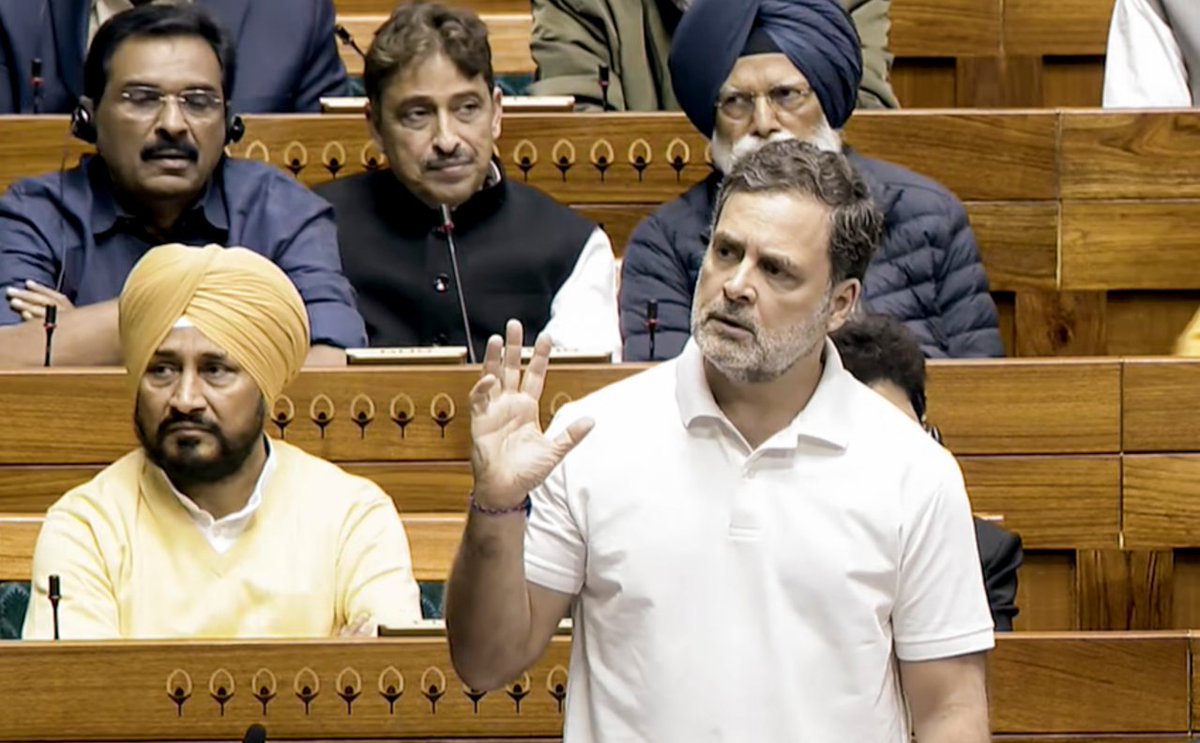

Don't you feel guilty about selling Bharat Mata Rahul Gandhi criticizes the US accord and the Center
Speaking in the Lok Sabha following days of deadlock, Rahul Gandhi criticized the Central government, led by Prime Minister Narendra Modi, for the recently concluded trade agreement with the United States, saying the administration should be embarrassed of it. In a vicious attack, Gandhi said that the Center "sold India" and that the government was endangering farmers' livelihoods by permitting US goods to enter."India is no longer yours. Do you not feel guilty for selling India? In reference to the trade deal, he declared, "You have sold our mother, Bharat Mata." He added that it was a "wholesale surrender" in which the interests of farmers were jeopardized and India's energy security was given to America. Gandhi went on to say that Donald Trump would have been advised to treat India equally if an INDIA Bloc administration had negotiated the trade deal with the US."This is total capitulation. The fact that it is a capitulation by more than simply the prime minister makes it tragic. He has given up the 1.5 billion Indians' future. Gandhi claimed that he had given up the future in order to save the BJP's financial structure, which is the subject of a case in the US.Gandhi claimed that the farmers' interests had been compromised and that they were facing a "storm" as American agricultural products flooded Indian markets. Additionally, he claimed that the Indian textile sector is "finished."We are about to enter a period of unrest, and the country has been sold. The country is sold out. "Its farmers and data have been sold," Gandhi reaffirmed as he wrapped up his remarks.Following Rahul Gandhi's address, Union Parliamentary Affairs Minister Kiren Rijiju declared that no one could sell India and charged that the Congress party was undermining the nation. "Congress is sad because India is progressing," he stated, asserting that Prime Minister Narendra Modi is India's strongest PM. He claimed that before leaving Parliament, the Congress MP gave speeches full of falsehoods and unfounded accusations. Rijiju remarked, "He never stays back to hear the minister's response."It is regrettable that we lack a serious personality or a person with a serious character that would be appropriate for the role of opposition leader. Rahul Gandhi's lies will be refuted by our party both within and outside the House.
Published 11 Feb 2026 11:10 PM
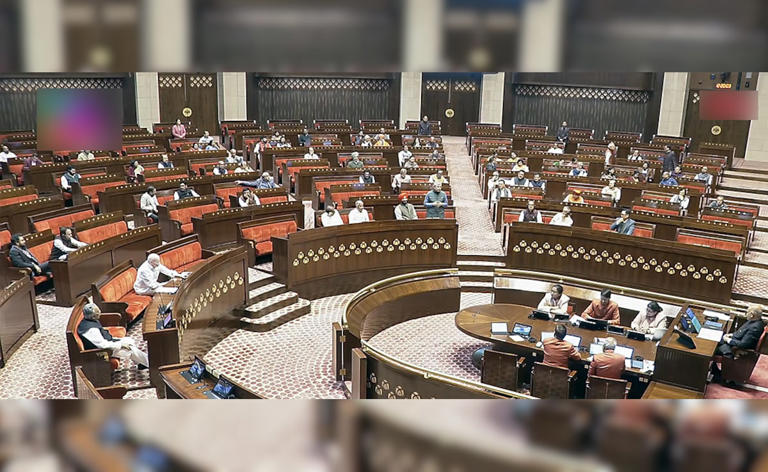

Updates for the 10th day of the Parliament Budget Session The Government-Opposition deadlock ends, and both Houses begin discussing the budget
The Lok Sabha began discussing the Union Budget on Tuesday, February 10, 2025, in the afternoon, signaling the end of the impasse between the opposition and treasury benches. The discussion had been delayed for days due to the opposition's insistence that LoP Rahul Gandhi be given the opportunity to speak on a number of topics. Following two adjournments, the House reconvened at 2 p.m., and the Speaker, Krishna Prasad Tenneti, invited Congressman Shashi Tharoor to commence the debate. The Thiruvananthapuram MP then began discussing the matter. Soon after opposition parties filed a notice to introduce a motion to oust Om Birla as Speaker of the Lok Sabha, the thaw occurred. Sukhendu Sekhar Roy of the Trinamool Congress emphasized that rising inequality could cause a "social upheaval," akin to what was seen in neighboring countries, as opposition parties criticized the government for failing to address issues like unemployment and inflation in the Union Budget during the budget discussion."If the situation is not brought under control, I fear that the country will soon experience social unrest similar to what has recently occurred in some of our neighboring countries. We have never witnessed such skyrocketing inequality between the rich, super rich, upper middle class, middle class, and the poor," Mr. Roy stated.
Published 11 Feb 2026 11:06 PM

India displays its entire armed might on the 77th Republic Day, with Operation Sindoor taking front stage on the Kartavya Path.
Top national leaders and prominent foreign visitors joined the festivities, which had as their subject 150 years of "Vande Mataram." About 10,000 distinguished guests saw the parade, which combined military might with cultural cohesion.At its 77th Republic Day parade on Monday, January 26, 2026, India put military might front and centre. Kartavya Path was transformed into a sweeping display of missiles, armour, mechanised columns, and combat aircraft, with a keen focus on weapon systems related to Operation Sindoor, the high-intensity military operation carried out in May of last year.The BrahMos supersonic cruise missile, Akash air defence system, Suryastra rocket launcher, and Arjun Main Battle Tank were among the major armament systems on exhibit at the start of the military demonstration, which emphasised India's focus on battlefield readiness and domestic defence manufacturing. A large portion of the equipment on exhibit was either used in Operation Sindoor, the confrontation with Pakistan that took place from May 7–10, or it was directly inspired by lessons learnt.A tri-services tableau featuring replicas of key weapon systems used during the operation was a big draw. A glass-cased integrated operational command centre served as its focal point, providing a visual representation of Operation Sindoor's execution through the coordinated use of systems including the S-400 air defence system and BrahMos. Akash and S-400 systems were depicted as offering a protective air-defense shield during the fight, while BrahMos missiles were predicted to perform decisive offensive attacks.Lt. General Bhavnish Kumar, a second-generation officer and General Officer Commanding, Delhi Area, led the procession. The Indian Army demonstrated a phased "Battle Array Format," including its airborne component, for the first time. The reconnaissance element included high-mobility reconnaissance vehicles after the historic 61 Cavalry in active battle uniform. Flying in Prahar formation, the domestic Dhruv Advanced Light Helicopter and its armed counterpart Rudra displayed aerial battlefield shaping.
Published 27 Jan 2026 09:07 PM
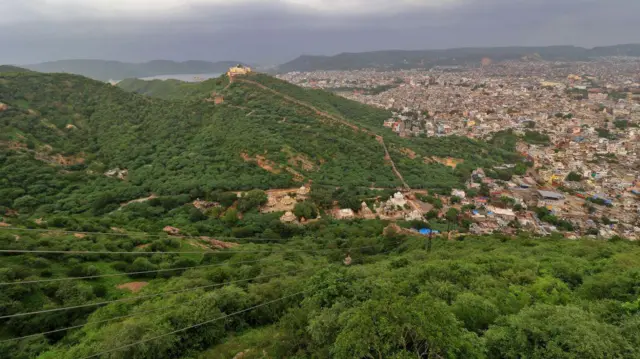

Why rising demonstrations are centered around India's Aravalli hills
The Supreme Court's redefinition of the Aravalli hills, one of the oldest geological formations in the world, which encompass the states of Rajasthan, Haryana, Gujarat, and Delhi, has sparked protests throughout northern India. Any landform rising at least 100 meters (328 feet) above the surrounding terrain is considered an Aravalli hill under the revised definition, which the court adopted in response to proposals from the federal government. An Aravalli range consists of two or more of these hills within 500 meters of one another, as well as the terrain in between. Environmentalists contend that classifying Aravalli hills according to height runs the risk of leaving many lower, scrub-covered but ecologically significant slopes vulnerable to mining and development. However, according to the federal government, the new definition is intended to increase uniformity and reinforce regulations rather than weaken rights.Protests have erupted across northern India after the Supreme Court redefined the Aravalli hills - one of the world's oldest geological formations spanning the states of Rajasthan, Haryana, Gujarat, and the capital, Delhi.
Published 22 Dec 2025 10:25 PM


Government News
Government News & Trends where we share you the latest updates under the government authorities globally starting from India to USA, China, Russia, Pakistan, UK and many more nations.
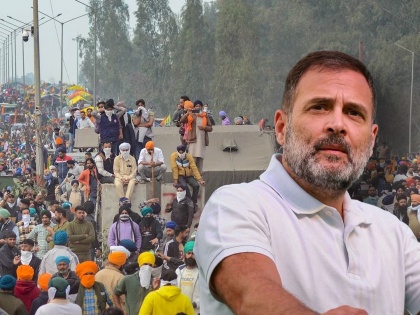

Farmers protest: Congress promises MSP for various crops if INDIA bloc wins Lok Sabha elections
The Congress has promised to implement MSP for various crops if INDIA bloc wins the upcoming Lok Sabha elections. The development came even as members of over 200 farmer unions began a Delhi Chalo agitation to press their demands. The protesters have called for several changes including the enactment of a law guaranteeing minimum support price for crops. “Farmer brothers, today is a historic day! Congress has decided to give legal guarantee of MSP to every farmer on crops as per Swaminathan Commission. This step will change the lives of 15 crore farmer families by ensuring their prosperity. This is the first guarantee of Congress on the path of justice," tweeted Congress MP Rahul Gandhi. Meanwhile Congress National President Mallikarjun Kharge lashed out at the "dictatorial Modi government" for being “hell-bent on curbing the voice of farmers!". The Congress party, he assured, would provide full support to the farmers' movement. Barbed wire, tear gas from drones, nails and guns... everything is arranged. The dictatorial Modi government is trying to curb the voice of farmers! Do you remember that farmers were called "agitators" and "parasites"? In 10 years, the Modi government has broken three promises made to the food providers of the country -Farmers' income to double by 2022, according to Swaminathan report, implementation of Input Cost 50 per cent MSP and legal status to MSP," he said. The remarks however sparked censure in the BJP ranks with lawmakers noting that the other party had previously failed to implement its guarantees. “Congress failed not once but many times and the guarantees of Congress also failed...In Himachal Pradesh too, they had given a guarantee of ₹1500 to every woman per month...but all their guarantees have failed...we increased the prices of MSP and also increased the procurement and Congress spent ₹5.5 lakh crore. While the Modi government spent ₹18.49 lakh crore... the Modi government has done many times more work for the agriculture sector and the welfare of farmers and will continue to do so in future also…" Union Minister Anurag Thakur told ANI.
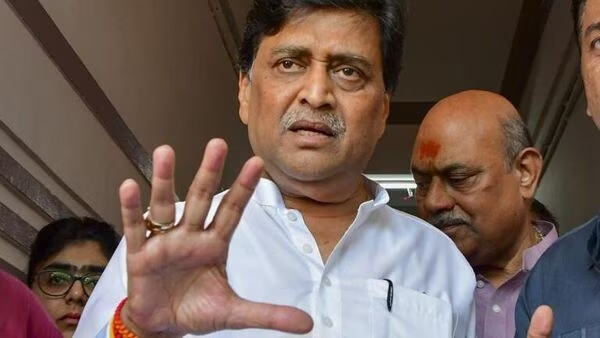

Ashok Chavan to join BJP today, calls it ‘a new beginning’
Former Maharashtra CM Ashok Chavan on Tuesday morning announced that he would be formally joining the BJP today.Ashok Chavan resigned from the primary membership of the Congress party on Monday. Sources close to the party further revealed some MLAs and office bearers of the Congress party are also likely to follow him. After submitting his resignation to Maharashtra Pradesh Congress Committee President Nana Patole, he told reporters on Monday, "I have resigned from the Assembly membership as an MLA. I have given my resignation to the Speaker. I have resigned from the Congress Working Committee and the Congress primary membership." Ashok Chavan served in the Maharashtra Legislative Assembly for three terms from 1999 to May 2014. He was the Chief Minister of Maharashtra from December 8, 2008, to November 9, 2010, when he was forced to resign due to corruption allegations linked to the Adarsh Housing Society scam. Meanwhile, several Congress leaders condemned the move, calling it a 'dirty political' game. Party leader Prithviraj Chavhan said, "Our senior colleague Ashok Chavan has resigned from the party and also as the MLA. It's a sad decision. This had been talked about for a long time. We didn't think he would make this decision. He was made the state CM on two occasions. What went wrong, who was he upset about--only he will tell about this. This is very tragic. All members of the Congress Legislative Party are together. BJP leaders are spreading rumours that some people are in touch with them," Chavan said while addressing the media. "It is really surprising. This hasn't happened in Maharashtra before. It is totally a dirty political game by the Bharatiya


‘We Need Extensive, Systematic Datasets To Counter Narratives Around Caste’
In November 2023, Bihar released the findings of its caste survey, revealing tentative but crucial data on various caste groups in the state, and exposing privileges and disadvantages faced by caste groups. There has been a demand by opposition parties to conduct a nationwide caste census to collate caste data. Such an exercise was last conducted in 1931. Some states such as Andhra Pradesh and Telangana have decided to conduct state-level surveys.We have a stereotype about caste based on the varna hierarchy [traditional birth-based Hindu social order] that it is ancient and stable, and nothing changes. The reality of caste is different at the regional level,” said sociologist Surinder S. Jodhka. Caste is an important indicator of social exclusion, he added. While the population census, which is now more than a decade old and delayed by nearly three years, collects data on Scheduled Castes (SCs) and Scheduled Tribes (STs), caste-based enumeration must be done by state governments because “caste formations are regional in character”, he added. Jodhka is a professor of sociology at the Centre for the Study of Social Systems, School of Social Sciences in Jawaharlal Nehru University, Delhi. In an interview, he speaks about the need for state-based caste censuses, why governments must engage more with scholars to unpack caste data, and the need for subclassifications of SCs, STs and Other Backward Classes (OBCs).
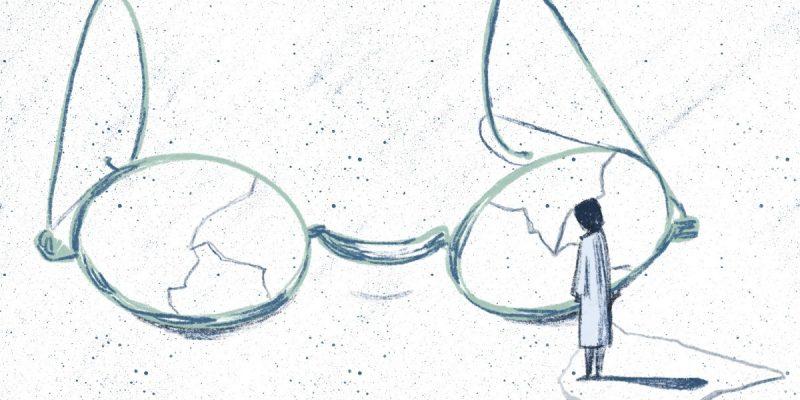

Gandhi’s ‘Doctrine of Frightfulness’ Charge Against the British is Just as Relevant for India Today
After the Jallianwala Bagh massacre of 1919, Mahatma Gandhi wrote that the British regime perpetuated itself by employing the doctrine of frightfulness. It struck fear in the hearts of people who were expected to meekly surrender before the colonial authorities by accepting falsehoods spun by them and forsaking not just protest but even a questioning attitude either in public or through the media. That doctrine of frightfulness is being replayed in the India of 2024. Those sections of the media which question the Modi regime are under attack and opposition parties are being split. People’s representatives, some of whom occupy high constitutional positions, are not spared. Many of them face jail, the threat of incarceration or repeated coercive action at the hands of government agencies. On February 12, former Maharashtra Chief Minister Ashok Chavan and a veteran leader of Congress resigned from the party. He was facing several corruption cases. A day later, he joined the BJP. The political buzz is that he was told he had two options – join the BJP or go to jail. This exemplifies how the doctrine of fear is used to actuate a former chief minister of a major state like Maharashtra to resign from his party and embrace the BJP. Several newspapers and independent media platforms such as Newsclick, Caravan, The Wire and Newslaundry have faced punitive action. In Kashmir, the press club was shut down and several journalists were jailed on trumped up charges. In the case of Newsclick, its founding editor Prabir Purkayastha faces terrorism charges under the draconian UAPA law for discharging journalistic responsibilities. Prime Minister Modi often takes pride in saying that India is the mother of democracy and yet his regime is acting contrary to basic democratic values. The relentless penal measures directed against the media flow from the doctrine of frightfulness which is applied with impunity to make independent and critical media subservient to the government, just as corporate media already is. These developments remind us of the dark days of martial law imposed in Punjab following the Jallianwala Bagh massacre and the suppression of the press. Mahatma Gandhi in his report on the Punjab Disorders observed that “The existence of independent journalism became an impossibility during the Martial Law regime and The Tribune, the Punjabee, and the Pratap stopped publishing”. Those words of Gandhi resonate in India now when there is a great threat posed to independent journalism and those media platforms who dare to question the powers that be.
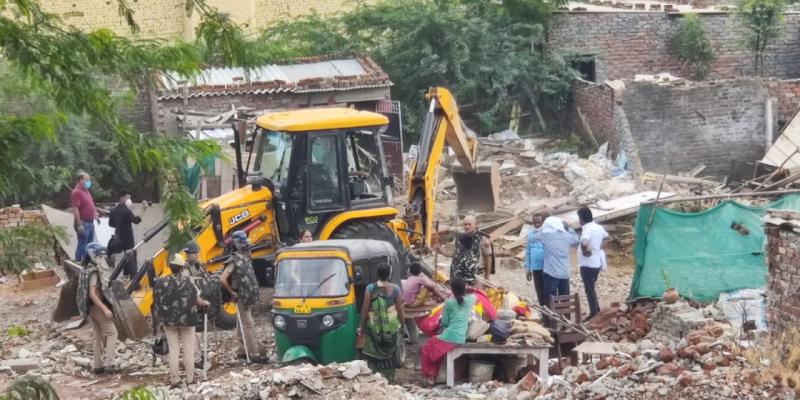

Demolitions as Extra-Judicial Punishment Have Left India in a Perpetual State of Violence
Under international human rights law, states must ensure that evictions only occur in exceptional circumstances, require full justification and the provision of adequate legal safeguards. None of that here in New India, of course. The demolitions in Uttarakhand last week, after which five people were killed in violence, follows a pattern that we see in Bharatiya Janata Party-ruled states. The pattern is of course that the government goes after citizens, especially Muslims. The demolitions are carried out as a form of extra-judicial punishment by the municipal authorities and the police, whether after episodes of communal violence or protests against discrimination. The pattern has been documented in reports like “Routes of Wrath: Weaponising religious processions” by the Citizens and Lawyers Initiative. In his foreword, former Supreme Court Justice Rohinton F. Nariman says the report corroborates the findings (of decline in Indian democratic values), adding: “It finds that in nine states, during Ram Navami and Hanuman Jayanti celebrations in April 2022, there were widespread acts of hooliganism and violence.” After this, the JCBs came out. A report by Amnesty International, of which I am India chair, has found similar patterns of people made homeless and deprived of livelihoods. These individuals were subjected to forced evictions, intimidation and unlawful force by the police and collective and arbitrary punishment, which undermined their rights to non-discrimination, adequate housing, and a fair trial. Muslim-concentrated localities were either chosen or Muslim-owned properties selectively targeted in diverse areas for demolitions.
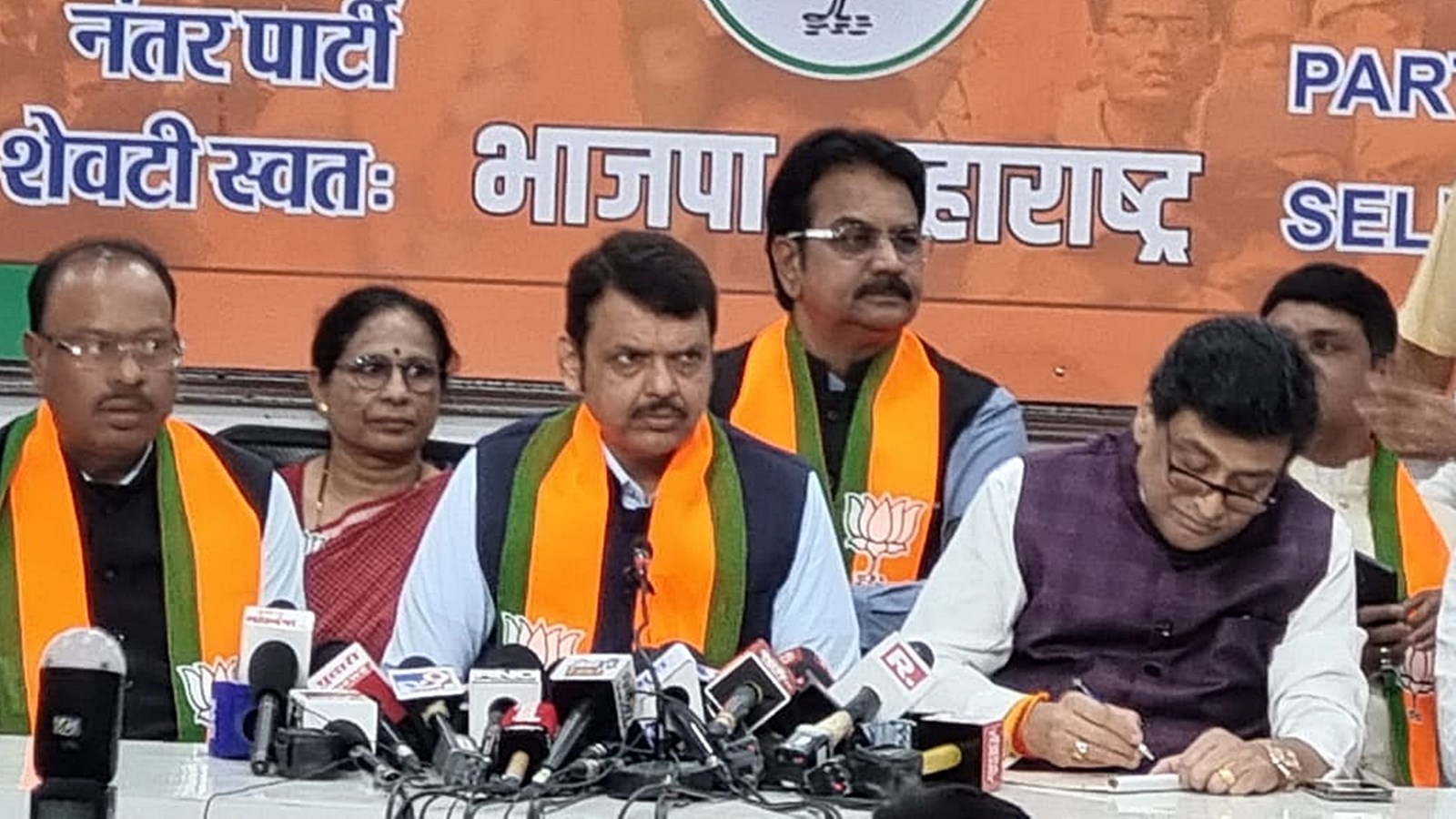

BJP imports leaders, exports confidence? What Ashok Chavan’s move says about the saffron party’s insecurities
The BJP needs Maharashtra to retain its strength in Parliament. With 48 seats — second only to Uttar Pradesh, which has 80 seats — the western state has been making the BJP nervous since the 2019 assembly elections when it failed to get a majority on its own On March 30, 2014, when he was in Nanded to campaign for the Lok Sabha elections, then Gujarat chief minister Narendra Modi received huge applause for his announcement that should he become prime minister, he would send Ashok Chavan to jail “within six months”. In 2023, with the incumbent PM expecting to begin his third innings, Chavan found himself mentioned again for his role in the Adarsh scam in the Modi government’s much tom-tommed White Paper, presented by Finance Minister Nirmala Sitharaman last week. However, as the 10th anniversary of the promise made in Nanded approaches, and barely four days after coming up in Parliament for his alleged role in the Adarsh scam, Ashok Chavan has joined the BJP. This is perfectly in line with the BJP’s current policy: Accuse and appropriate. Last year, when addressing party workers in Bhopal, Modi charged the NCP leadership of swindling Rs 70,000 crore in various misdeeds, including the Maharashtra State Cooperative Bank scam, irrigation scam and illegal mining scam. Soon, Ajit Pawar, an alleged kingpin in these scams, joined hands with the BJP, sharing the deputy chief ministership with its home-grown stalwart, Devendra Fadnavis. The BJP’s “Free Incoming” policy, read with PM Narendra Modi’s frequent trips to the state, underlines the importance given to Maharashtra in pursuit of its “Mission 400” in the upcoming parliamentary polls. In contrast to its rhetoric, the BJP’s unabashed import of tainted leaders hints at how unsure it is about Maharashtra.Having peaked in the Hindi heartland, two states are crucial for the BJP’s parliamentary arithmetic — Bihar and Maharashtra. Thanks to habitual turncoat Nitish Kumar, the BJP is assured of its position in Bihar. However, Maharashtra continues to be its Achilles’ heel. This reality was reflected in the recent survey conducted by a private agency for a media house, which gave the ruling combine not more than 22 seats. This is despite the BJP making every effort to split the Shiv Sena and the NCP to form a three-party government in the state. If this poll is to be believed, the residual Shiv Sena led by Uddhav Thackeray and the NCP that is led by the old Maratha war horse, Sharad Pawar, could walk away with as many as 26 seats. The fact that in the 2019 general elections, the BJP-Shiv Sena combine had pocketed 41 out of 48 seats speaks of how tough the task in Maharashtra is for the BJP. The BJP needs Maharashtra to retain its strength in Parliament. With 48 seats — second only to Uttar Pradesh, which has 80 seats — the western state has been making the BJP nervous since the 2019 assembly elections when it failed to get a majority on its own. The subsequent experiment by the Congress, the Sharad Pawar-led NCP and the Shiv Sena to join hands and keep the BJP at bay forced the saffron party to adopt a two-pronged strategy: Split the Shiv Sena and the NCP and later weaken the Congress by incorporating many of its leaders. Having achieved the first two, the BJP is now on the third. A point worth noting is that all these imported settlers have a common imprint. Almost all of them are Marathas — be it Narayan Rane, Radhakrishna Vikhe Patil, Harshvardhan Patil, etc — who were brought in a few years ago, or the fresh ones like Ajit Pawar and Ashok Chavan. The BJP’s quest for Maratha votes has a solid reason: It lacks its own Maratha leader who has popular appeal, particularly in western Maharashtra and Marathwada. The BJP has high hopes for Ajit Pawar for the former region, while it expects Ashok Chavan to deliver in the latter, where the BJP has been unable to find an able successor to the late Gopinath Munde. The legacy of Munde — who hailed from Beed, adjacent to Ashok Chavan’s constituency, Nanded — has three claimants: Two of his daughters, Pritam, a doctor and MP, and Pankaja, an MLA, and his nephew Dhananjay, who has joined hands with Ajit Pawar after a stint in the BJP. Even the three together do not wield the kind of influence that Munde did. Since his demise in 2014, the BJP has been in search of a formidable face in the region.
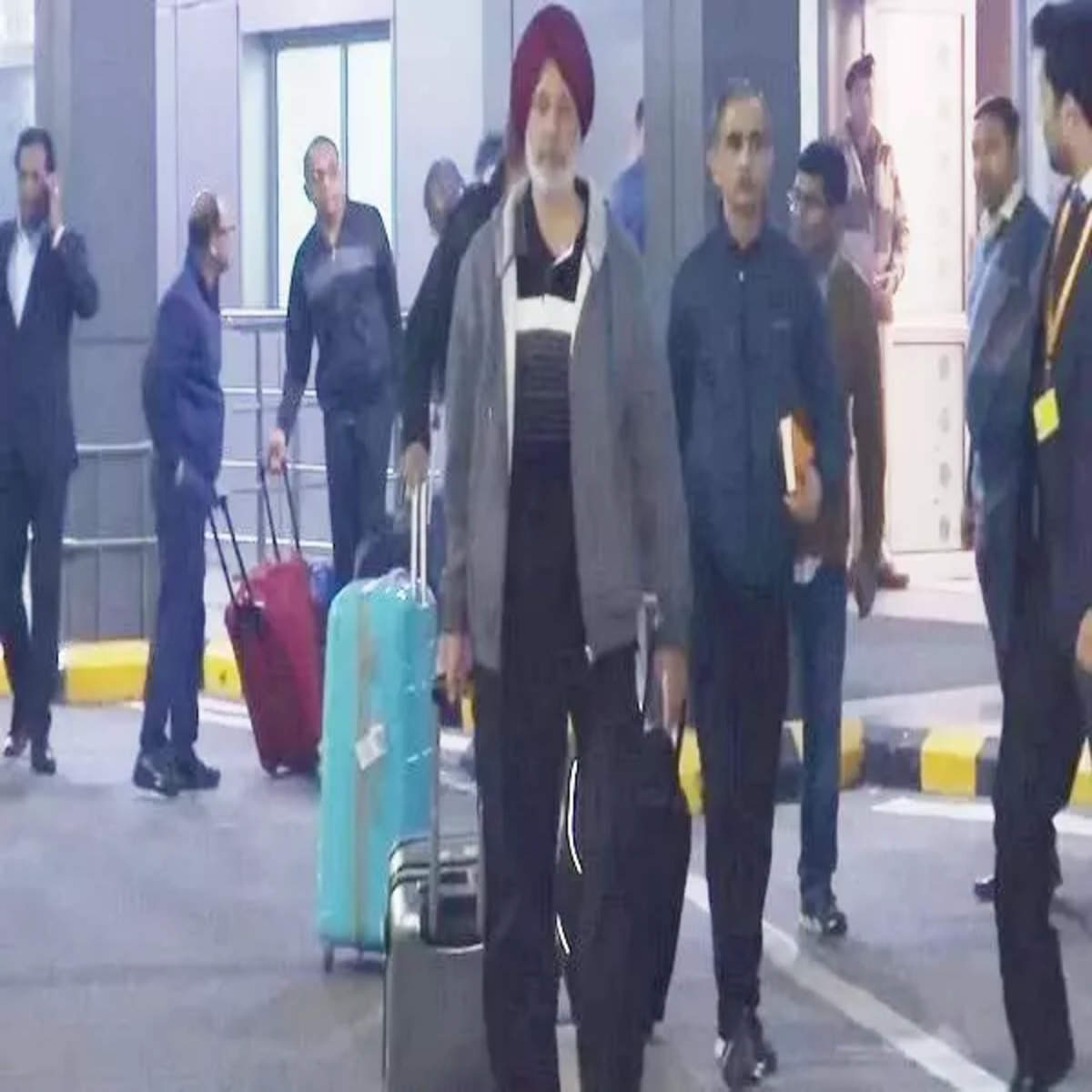

Ex-Navy vets freed by Qatar chant Bharat Mata Ki Jai, praise PM Modi
Setting foot to their homeland after several agonising months of captivity in Qatar, seven of the eight Indian navy veterans who were sentenced to death on ‘espionage’ charges, heaped praise on Prime Minister Narendra Modi, saying they wouldn’t have been freed had it for the sustained diplomatic efforts at his behest to secure their release. Relieved to finally walk free, the seven former Navy officers raised chants of ‘Bharat Mata ki Jai’ after arriving at the Delhi airport in the early hours of Feb 12. One of the Navy veterans who returned from Qatar said, “We waited almost for 18 months to be back in India. We are extremely grateful to the PM. It wouldn’t have been possible without his intervention and his equation with Qatar. We are grateful to the Government of India from the bottom of our hearts for every effort that has been made and this day won’t have been possible without those efforts.”The eight Indian nationals were imprisoned in Qatar since October 2022 and were accused of allegedly spying on a submarine programme. The retired naval personnel were sentenced to death by a Qatar court on charges that have not yet been made public officially.


Karnataka in tie-up with Coffee Board to train 1 lakh women entrepreneurs
Karnataka in collaboration with Coffee Board plans to train one lakh women members of self help groups (SHGs) as coffee entrepreneurs in the state.Karnataka, the largest producer of coffee in India, plans to train 100,000 women from self-help groups (SHGs) as coffee entrepreneurs in an effort to empower and boost the coffee industry. The state, in collaboration with the Coffee Board, will also set up 2,500 coffee kiosks managed exclusively by SHG women. Karnataka accounts for over 70% of the country's coffee production, with coffee being grown in over 2.46 lakh hectares in the state. The majority of coffee growers in Karnataka are small growers. The Coffee Board is in regular discussions with the State Rural Livelihood Mission to create women coffee entrepreneurs, and with the formal announcement made in the state budget for 2024-25, the initiative will be implemented in the coming year. The coffee industry in Karnataka provides employment to over 5.19 lakh people on a daily basis. The poultry industry in India is urging the government to allow the import of genetically modified (GM) maize and soyameal due to strong competition for maize supplies from ethanol-makers. The industry heavily relies on maize for its feed requirements and believes that importing GM maize and soyameal, as well as introducing high-yielding GM seeds, will increase productivity. Suresh Chitturi, Managing Director of Srinivasa Farms and Co-Chair of CII’s National Committee on Animal Husbandry and Dairy, highlighted the success of the Green Revolution in increasing wheat and paddy productivity through the introduction of high-yielding varieties. The poultry industry also called for measures to increase maize production from 30 million tonnes to 40 million tonnes. The demand for maize from the poultry industry is expected to grow by 1 million tonnes annually, while the country's maize usage for ethanol production is projected to increase from 0.8 million tonnes to 10 million tonnes by 2027-28. The per capita egg consumption in India has reached 101 eggs and is expected to rise to 180 eggs in the next 6-7 years due to increased awareness of immunity and protein intake. sources


Indias economic growth may exceed 6% for rest of the decade: Goldman Sachs
India’s economic growth may exceed 6 per cent for the rest of the decade, driving more investments from China into the South Asian country, Goldman Sachs Group Inc.’s India economist said. Potential growth is an estimate of the pace an economy can grow at withoucuts ausing excess inflation. India’s central bank governor last month estimated the nation’s potential growth rate was around 7 per cent.Goldman Sachs expects the private sector in India to accelerate investments after nationwide elections. Businesses have deleveraged aggressively and their balance sheets are among the “cleanest that we have seen India in the last 20 years or so,” he said. The Reserve Bank of India is expected to wait for the Federal Reserve to move before adjusting monetary policy, he said, adding that the RBI’s actions will come in three phases, including easing liquidity, a change in the policy stance followed by interest rate cut.


India, UK trade pact talks at advance stage; we want a fair deal: Govt
The negotiations for the proposed India-UK free trade agreement are at an advanced stage, and both sides are working to iron out differences on the remaining issues, a top government official said on Thursday. Commerce Secretary Sunil Barthwal said the negotiations are taking time because "we want" to safeguard India's interest. India should commercially gain out of it and we should also be able to safeguard the interest of our farmers, PLI (production linked incentive) scheme goods. So, we are there to see that the deal is a fair deal," he told reporters here. Additional Secretary in the Commerce Ministry L Satya Srinivas said the talks are at an advanced stage and going on at a "very" high level to iron out differences. The 14th round of talks started on January 10.The investment treaty is being negotiated as a separate agreement between India and the UK.The bilateral trade between India and the UK increased to $20.36 billion in 2022-23 from $17.5 billion in 2021-22.On the India-European Union (EU) free trade agreement, the ministry informed that the seventh round of talks is scheduled from February 19-23 here. In June 2022, India and the EU restarted the negotiations for the long-pending trade and investment agreement on Friday after a gap of over eight years.On the India-Pacific Economic Framework for Prosperity (IPEF), Additional Secretary in the ministry Rajesh Agrawal said that legal scrubbing of text on clean and fair economy agreements is underway. He said the supply chain resilience pact will come into force from February 24 this year. To implement this, he said, action plans are being developed to optimise participation in institutional structures under the supply chain pact.


Dilli Chalo protest: Farmers call ceasefire for now, say will try again tomorrow
Farmers are demanding a law on minimum support price for crops and have said it will march towards Delhi after their talks with a team of union ministers failed on Monday. Farmer leaders on Tuesday evening declared a temporary ceasefire for today and said they would continue with their protest from tomorrow morning. Addressing the media on Tuesday, the farmers said they are worried about the well-being of their members. “Around 60 of our men have sustained injuries. The government is provoking us by attacking us with tear gas shells and rubber bullets,” they said. Farmers are demanding a law on minimum support price for crops and have said it will march towards Delhi after their talks with a team of union ministers failed on Monday. Earlier in the day, farmers began to remove the barricades at the Punjab-Haryana (Shambhu) border, following which the Haryana police fired rounds of tear gas to disperse them. After the confrontation between the farmers and the police at the Shambhu border (Haryana-Punjab), the Tikri border was sealed by the Delhi Police, according to news agency PTI. Additionally, all entry and exit points of the surrounding streets and villages that connect to the highway near Tikri Metro Station were also closed. 'Delhi Chalo' agitation is spearheaded by SKM splinter group Samyukta Kisan Morcha (Non-Political) and the Kisan Mazdoor Morcha. It urged all like-minded farmer organisations to unite and take part in the February 16 Gramin Bharat Bandh called by the central trade unions. News agency PTI said SKM has written to Prime Minister Narendra Modi demanding Minimum Support Price for crops, slamming action on the farmers' 'Dilli Chalo' march and accusing the government of trying to "project" division among farmer bodies.


Farmers protest: Key differences in 2020 versus 2024 agitation
Thousands of farmers from Haryana, Punjab and Uttar Pradesh were back on the road to the national capital on February 13 over two years after they had called off their strike. The move came after the last round of talks between the farmer leaders and the Union ministers remained inconclusive on February 12 night. Massive security arrangements have been made and borders have been between Punjab and Haryana and Haryana and Delhi to deter farmers from entering New Delhi. However, this protest is different from the ones the farmers held in 2020-2021. In 2020, the farmers protested the three farm laws. They were repealed by the Centre in 2021. However, the key demand this time is different. They want legal guarantee to MSP for all crops, full debt waiver and pension for farmers, the implementation of the Swaminathan Commission's formula, and withdrawal of cases against farmers during the 2020 protest. According to the guidelines, the government sets the MSP for nearly two dozen commodities twice a year based on the recommendations of the Commission for Agricultural Costs and Prices.
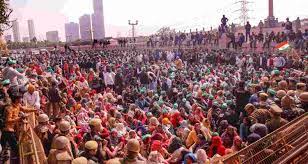

Farmers demonstration in 2024 Union ministers meet in Chandigarh with union leaders
In the midst of a standoff between protestors and security forces at two locations on the Punjab-Haryana border, three Union ministers started their third round of negotiations with the heads of the farmer unions that are demonstrating in Chandigarh on Thursday night.Union Ministers Arjun Munda, Piyush Goyal, and Nityanand Rai met with farmer leaders in response to the ongoing "Delhi Chalo" agitation by the Kisan Mazdoor Morcha and the Samyukt Kisan Morcha (Non-Political). Attending the meeting at the Mahatma Gandhi State Institute of Public Administration in Sector 26 was Punjab Chief Minister Bhagwant Mann as well.The two parties will be having their third round of discussions; the first two, held on February 8 and 12, ended in a deadlock. The protest was initiated in response to requests by farmers for a minimum support price (MSP) law for crops and loan waivers, which the BJP-led Centre was under pressure to grant. A guaranteed MSP cannot be announced, as the Center has made clear.The leaders of the farmer unions and the Union ministers Piyush Goyal, Arjun Munda, and Nityanand Rai have ended their third round of talks with the Punjab Chief Minister in Chandigarh. Speaking to the media, Minister Arjun Munda said that the discussion was fruitful because the farmers had raised a lot of significant issues. The following set of meetings, according to him, will take place on Sunday.Long after midnight, the third round of negotiations between the Punjabi farmers who are protesting and three central ministries ended in a constructive manner. The conversation was "very positive," according to Union Agriculture Minister Arjun Munda, and they had agreed to get together again on Sunday night. The leaders of the farmer unions referred to the talks on MSP, the Swaminathan report, and loan waiver as "fruitful," and Chief Minister Bhagwant Singh Mann declared that he would keep mediating peace for the state since he did not want to witness young people being targeted by tear gas.The state's internet would be restored, and the suspended social media pages of the farmer leaders would be reactivated, Central leaders promised. As the Kisan Mazdoor Morcha coordinator, Sarvan Singh Pandher, put it, "If the commitments made during the meeting are translated into action, it would be highly beneficial for the farmer." This statement summed up the conversation well. Speaking to the media, Mann stated that all of the demands put out by the farmers were considered in a constructive setting. "As the state's chief, I stood up since Punjabi farmers are the ones most impacted. All of the topics were thoroughly discussed."I brought up the subject of three districts' internet bans and how they affect students taking exams. Why are they at fault? The farmers displayed shot rounds. We remarked that this was not how the farmers should be handled.


Trump Shows Up In A US Court Regarding Closed-Door
During a closed-door meeting in his case involving classified documents, former US president Donald Trump was in federal court in Florida on Monday. The lawyers were debating who would have access to the top-secret evidence. In June, Trump, then 77 years old, entered a not guilty plea to allegations of making false statements, conspiring to obstruct justice, and illegally keeping information related to national defense. Aileen Cannon, the case's judge, has called attorneys from both sides to appear in court on Monday.A group of supporters holding posters welcomed the former president and his entourage when they arrived at the Fort Pierce courthouse, approximately 125 miles (200 kilometers) north of Miami, at 9:00 am (1400 GMT). The government's attorneys are against the move, claiming that the material is too sensitive, but Trump's lawyers are hoping to obtain access to the classified evidence that is currently in the hands of the prosecutors. Cannon stated that Trump's attorneys need to be ready to "discuss their defense theories of the case, in detail, and how any classified information might be relevant or helpful to the defense" in a court document announcing the hearing.She will first hear from the defense, and then from the federal prosecutors. The trial for Trump is set to start on May 20. Two workers, Waltine Nauta, Trump's personal assistant, and Carlos de Oliveira, the property manager, are also accused. Trump has attended hearings in a number of court cases against him in recent weeks.


Jagdeep Dhankhar And M Kharges Big Face-Off In Parliament Over Rules
When Mr Dhankhar appeared to accuse the Congress of "insulting" a Bharat Ratna recipient, Mr Kharge lost his cool and asked the Vice President to not indulge in politics. The Vice-President then retorted, "Because I come from the farmer community, does not mean I am a weak Chairman. I have tolerated a lot."New Delhi: The buzz around the Jayant Chaudhary-led RLD joining hands with the NDA and the consternation this has caused in the troubled INDIA alliance spilled over into Parliament on Saturday, sparking a sharp exchange between Congress President Mallikarjun Kharge and Rajya Sabha chairman Jagdeep Dhankhar. The exchange began after Jayant Chaudhary, whose party is a member of the INDIA alliance, rose in the Rajya Sabha and started thanking the BJP-led NDA government and Prime Minister Narendra Modi for announcing that the Bharat Ratna would be conferred posthumously on his grandfather Chaudhary Charan Singh. Congress leaders objected to the speech and Mr Dhankhar then asked Mr Kharge to either "control your people or rise and address the House". Prefacing his remarks with the assertion that he and the Congress were happy that former Prime Ministers Narasimha Rao and Chaudhary Charan Singh, and the father of the Green Revolution, Dr MS Swaminathan, were being awarded the Bharat Ratna - and that he "saluted" all three personalities - Mr Kharge wondered how Mr Chaudhary was allowed to speak on the issue. "Whenever we want to discuss something, you always ask us what rule we should be allowed to do so under. I want to pose the same question to you: under which rule was he (Mr Chaudhary) permitted to speak? If this is the way it is, you should always give us permission as well. On the one hand, you talk about rules, and on the other, you allow whoever you want (to speak)," Mr Kharge said in Hindi. Incensed, Mr Kharge thundered, "Don't make politics (sic). I said we salute all the people who have worked for this country. Irrespective of political parties. Irrespective of caste and creed. We salute them. But the way the discussion is going on, neither are you following the rules nor have you brought that agenda for discussion. We all could have participated."
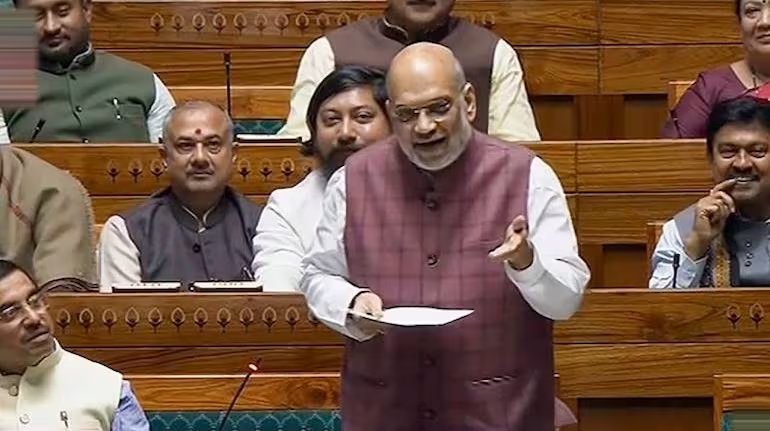

Amit Shah says BJP always welcomes new allies, talks on with SAD
The BJP does not believe in "family planning" in politics and always welcomes new allies, Union Home Minister Amit Shah asserted on Saturday and said that talks were on with the Shiromani Akali Dal. Speaking at an event, Shah also stressed that the Citizenship (Amendment) Act (CAA) will be implemented before the Lok Sabha polls and predicted the BJP will win 370 seats while the NDA will get more than 400 seats out of 543 in the elections.Asked about the possibility of the Rashtriya Lok Dal (RLD), headed by Jayant Singh, Shiromani Akali Dal (SAD) and other regional parties joining the National Democratic Alliance (NDA), the home minister said, "We believe in family planning (in general) but not in politics." "We always want that our alliance grows and we always welcome new allies. Our ideology has remained the same since the days of Jan Sangh. Those who like to join us can come," he said at the ET NOW Global Business Summit 2024.When pressed further on the re-entry of SAD in NDA, he said, "Talks are going on but nothing has been finalised." On the possibility of joining hands with the TDP, which left the NDA in 2018, or the YSR Congress, Shah said, "Everything is not disclosed in such platforms. Wait for some time. Everything will be clear for all." In a major political realignment ahead of the Lok Sabha polls, JD(U) chief Nitish Kumar switched from the opposition INDIA bloc to the NDA last month while there is talk of RLD also joining the BJP-led alliance."There are normally two reasons why they leave. It is because of certain incident or it is because of the political equation of a particular state. But the BJP never sought separation from any party. BJP always maintained the coalition dharma," Shah said. The Union minister asserted that there is no suspense over the outcome of the Lok Sabha polls and even the Congress and other opposition parties have realised that they will again have to sit in the opposition benches.


UPA pushed India into fragile five club: FM Nirmala Sitharaman
New Delhi: Finance minister Nirmala Sitharaman tore into the previous Congress-led United Progressive Alliance (UPA) government on Friday, saying it pushed the country into the Fragile Five and left it in dire straits in 2014 with its economic mismanagement by putting the "first family" first.During the UPA regime, the security of the nation was compromised, environmental clearances were delayed, and the leadership failed as it was run by a "super prime minister" and there was at least one big-ticket corruption case every year. Initiating the debate on the 'White paper on Indian economy and its impact on the lives of people of India', Sitharaman said it was Prime Minister Narendra Modi who put the nation first, pulling the country out of crisis and placing it among the top five economies of the world. India is now on the way to becoming the third-largest economy, she said, adding that the NDA government will make India a developed nation (Viksit Bharat) by 2047.The youth should know what efforts the Prime Minister has put in to restore the country's past glory, said the FM, even as opposition members Saugata Roy of the Trinamool Congress Party and NK Premachandran of the Revolutionary Socialist Party moved substitute motions against the white paper. On the need for the document being presented now, the finance minister said citizens as well as government officials would have been disillusioned had the white paper been released in 2015-16."Had we done that, no investors would have invested in India and if the truth of the economy was given out at that time, people would have lost faith," Sitharaman said. She said when the NDA government took over in 2014, there was a critical shortage of ammunition and defence equipment. Bullet-proof jackets and night goggles were not available for soldiers."When you don't put the nation first, when you put your first family first, and when you have other considerations than transparency, the results are out there for you to see," Sitharaman said. "So what happened after 2008 when there was a global financial crisis and what happened post-Covid shows clearly that if the intent of the government is sincere, results will be good."


Leaf sheep slug takes the internet by storm
Fascinating sea creatures called the leaf sheep slug are taking the internet by storm with their fluffy appearance and quirky antics. Found primarily in the waters around Japan, the leaf sheep slug, also known as Costasiella kuroshimae, is the only sea creature in the world that can perform photosynthesis like plants.One of the most endearing features of the leaf sheep slug is its resemblance to a tiny, grazing sheep. Covered in fluffy green appendages called cerata, these slugs munch on algae, giving them their distinctive colour and helping them blend with their surroundings. It is like they are wearing a fluffy green coat. It is a type of sea slug that looks like a tiny, walking ball of green fuzz.Leaf sheep slugs can often be seen “herding” together in groups, moving gracefully through the water like a flock of sheep. Scientists believe this behaviour helps them protect themselves from predators and find the best grazing spots.Despite their small size, leaf sheep slugs are making a big impact on marine conservation efforts. Their reliance on algae makes them an important part of their ecosystem, helping to keep algae populations in check and maintaining the health of coral reefs. Leaf sheep slugs are harmless to humans, making them the perfect subject for underwater photography enthusiasts and nature lovers alike.



















